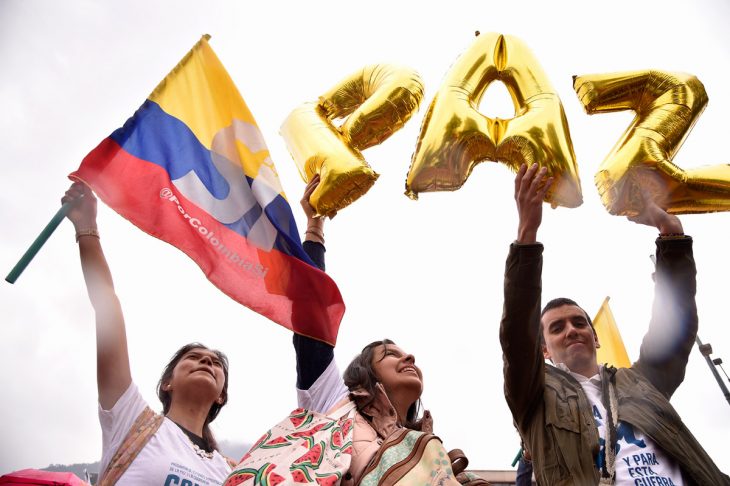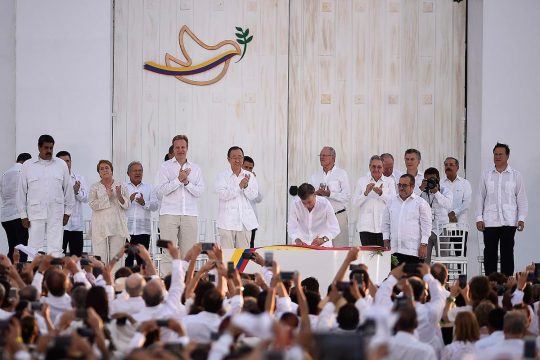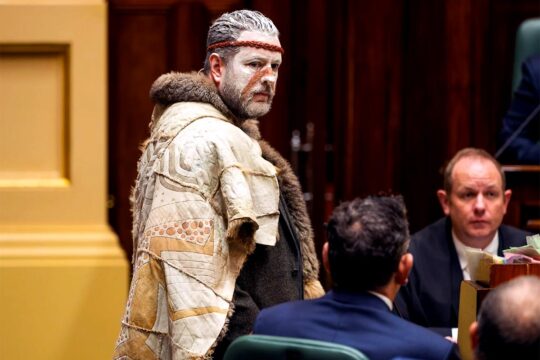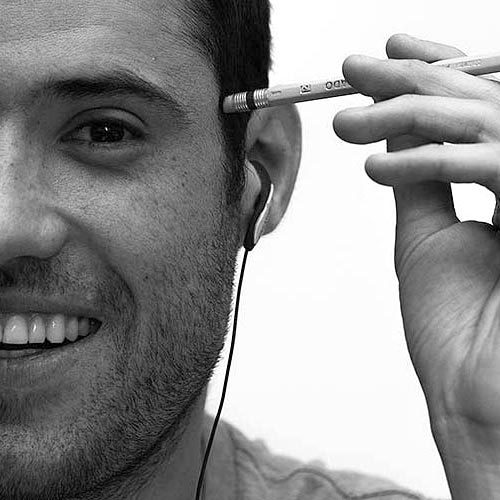Acknowledgment of responsibility occupies a central position in Colombia’s innovative transitional justice system that is currently attempting to simultaneously satisfy victims’ rights to truth, justice and reparation, as well as help Colombians heal the wounds left by a 50-year-long conflict.
“It’s indisputable: for the peace process to continue advancing, it’s crucial that FARC acknowledge what they did and publicly commit to never doing it again. It’s also much more credible when this is done facing society and victims,” says Pastora Mira, a social leader from eastern Antioquia. Her town, San Carlos, is a symbol of forced displacement by both Revolutionary Armed Forces of Colombia (FARC) and extreme right-wing paramilitary groups.
An explicit recognition of the harm caused is doubly significant. On one hand, former FARC combatants may receive more lenient sentences for serious and representative crimes, such as murder or kidnapping, if –and only if- they fulfil three conditions: acknowledging their responsibility before the transitional justice system, telling the truth, and personally helping redress victims.
The idea behind this incentive is that those persons responsible may come forward and own up to their role, allowing the Special Jurisdiction for Peace –locally known as JEP- to build its cases quicker than in an adversarial system. In turn, this would avoid the tribunal from collapsing on account of the gigantic legacy of atrocities it has to prosecute in a country where 8,8 million persons –out of a population of 48 million- are officially registered as victims.
Initial momentum
Beyond its legal importance, victims, vast segments of Colombian society and even politicians who long opposed the peace deal agree on the importance of public admissions about what happened.
Reality has proven tougher. Three years after the peace deal was signed, Colombians have yet to see widespread acts of forgiveness and former rebel leaders still seem reluctant to make public displays of sincerity and humility.
There was some initial momentum though. In December 2015, FARC apologized publicly to a community for the first time. It happened in Bojayá, a small riverside village in the tropical forests of northwestern Colombia where in 2002 FARC launched a cylinder bomb against the church where villagers were seeking refuge from a confrontation between that guerrilla and paramilitaries. The attack left 119 dead, becoming one of FARC’s most infamous massacres.
Two similar ceremonies occurred a year later, around the time the peace deal was signed. In September 2016, FARC apologized to the relatives of 35 persons they killed in Urabá. Two months later they admitted their responsibility in the kidnapping and murder of 11 state legislators in Valle del Cauca. Both took place however as the country was caught up in the political bickering that surrounded the failed plebiscite that led to a renegotiation of the original peace deal and the signature of a new accord in November 2016, limiting their public impact.
Only a few more have taken place since – even if it should be in FARC’s own interest given that multiplying these acts would not entitle them to less severe sanctions but is considered a form of reparation to victims. Most of those were relatively private or took place in rural towns, garnering scant media coverage or public visibility. This reality has reinforced the perception that FARC are unwilling to face their victims and express regret.
“FARC will never admit their responsibility. That’s wishful thinking because it’s not their character. They have used narratives that justify violence since their creation,” says Ximena Ochoa, a cattle rancher from southwest Colombia whose mother was kidnapped for ransom by FARC. She ended up opposing the peace deal, even though she was one of 60 victims who shared her expectations with the two negotiation teams in Havana in 2015.
Are pardons local or national?
As Colombians expect more public displays of remorse from FARC, some victims have sought FARC to pave the way for such ceremonies. “They have a historic debt with the inhabitants of Huila and Caquetá. We’re not asking for them to be thrown in prison for life, but that they publicly seek forgiveness and reconciliation. This is what allows us to dignify our lives. Moral and psychological redress is crucial for us”, says Holmes Fabián Ordóñez, a 27-year-old who lost his right leg after stepping on a landmine probably left by FARC as a teenager.
One year ago, Ordóñez travelled to the FARC reincorporation camp in Miravalle, close to where he grew up, to try to speak to persuade former local commander Hernán Darío Velásquez to hold a public ceremony with landmine victims. His idea was to hold it in the town of Algeciras, where until last year Ordóñez worked until recently in a humanitarian demining operation. Velásquez, better known by his nom de guerre ‘El Paisa’ and his responsibility in major FARC attacks like the 2002 car bomb at Bogota’s El Nogal Club, refused to meet him. He joined the group led by Iván Márquez that decided last month to abandon the peace deal and rearm. Unfazed, Ordóñez sought Carlos Antonio Lozada, another of FARC’s former military leaders who now sits in Congress. “Let’s work on it,” he replied, but little else has happened since.
Like him, Pastora Mira has also been working on planning an act of acknowledgment of responsibility in her hometown of San Carlos. “I see it with a view on the future: younger generations see that it is not acceptable to participate in actions that cause such harm and understand that it’s not worth following the footsteps of paths whose results are there for everyone to see,” says Mira, who has been working with the Catholic Church and local organizations. They have been meeting with Pastor Álape, who participated in the peace talks and has been perhaps the most active former FARC leader in acts of contrition. He already asked the neighbouring town of Granada in September 2017 for forgiveness over frequent episodes of forced displacement.
For her, the relevance of such events is mostly local, as this is where they can help diminish mistrust in the peace deal and foster reconciliation within communities. She is aware that although victims want to see FARC asking for forgiveness, it is often difficult to satisfy their expectations. Whenever former guerrilla commanders attend they are unable to answer very specific questions on persons who have been deemed missing, but when more local lower-ranking members do so, people feel there is no significant representation of the organization that caused them harm.
As actions like these fail to multiply, FARC members have been unable to counter the general perception that so far they been arrogant and unrepentant.
Are private or public pardons better?
Despite the fact that public acts can play a healing role for all of Colombian society, many victims prefer private face-to-face encounters with former FARC members.
“The personal, private meeting was more important to me because I felt my words were able to come out. It was always FARC who had done the active talking, whether it was by placing bombs, killing, or actually saying something. In private it’s the victim who takes on an active role, expressing what he or she feels, giving a voice to what hurts, attaining catharsis and liberating all the demons carried for so long,” explains Sebastián Arismendy, a 22-year-old university student whose father, state assemblyman Héctor Arismendy, was kidnapped by FARC in 2002 and murdered by them five years later.
The relatives of the twelve state legislators met privately with FARC on three occasions, to plan the solemn ceremony held in late 2016 in the church across the state parliament in Cali where they were kidnapped during a bomb attack drill. Arismendy remembers he shouted angrily at them the first time they were in the same room in Havana, holding them accountable for having last seen his father when he was five.
During the last meeting, on the eve of the ceremony, Arismendy felt that something had changed. He recalls feeling strangely elated and calm now, after having grown up imagining FARC literally as “a monster”.
He also remembers that Iván Márquez, the former FARC peace negotiator who recently abandoned the peace deal and rearmed, sat next to him and another assemblyman’s daughter. After saying he understood their pain because he too had children, Márquez offered to hug them. Arismendy declined, feeling he was not prepared for that.
But he defends that victims can heal by meeting with perpetrators in carefully controlled spaces led by them. “The public act is for society to see that something is happening, but the private one is for me. In that sphere they show a more humane side, using real words that are less legal and solemn. In public they speak about acknowledging responsibility, in private they said ‘please forgive me, I made a huge mistake,” says Arismendy, who describes their attitude as “arrogant” and has a list of questions about his father he still wants them to answer.
When acknowledgment is not enough
Some victims are expecting public remorse from FARC, as long as it is comes along with some form of redress.
“Asking publicly for forgiveness is important, but it isn’t enough. These are generally cold ceremonies, while reconciliation demands time and sharing in community spaces to effectively enable healing,” says Hernando Chindoy, leader of an Inga indigenous community from southwest Colombia which for years endured selective assassinations, threats and forced displacement from FARC in a region where they controlled the trade of poppy latex destined for heroin production.
Chindoy, who was elected national leader of the 27,000 Ingas in the country last year, says he still feels wary about FARC’s attitude, which he doesn’t see as generous enough. “It’s like when a hammer hits you in the hand and drives your nail out. When a community loses a person, it loses a part of its body. It’s that painful and it’s why healing is so important,” he adds.
Despite Chindoy’s reservations, his community is setting an unlikely example of reconciliation with their former perpetrators. Two years ago they opened a shop in Bogota’s historic downtown to sell the specialty coffee they produce in their mountainous lands in Nariño, after becoming a national model in illegal crops substitution. A few months ago, their Café Wuasikamas began selling La Roja beer, which is being produced by several former rebels in Tolima as part of their reincorporation to civilian life.
For Chindoy and many other victims, an admission of responsibility should be accompanied by robust actions of reparation in realtime. “Many former FARC members are now finishing university studies on scholarships. If they caused much harm with weapons, why not redress people like us with their new skills?” he asks.
The precise moment to continue?
For many victims, the current political crisis after the rearming of a small but important group of FARC leaders means that the 92% of former rebels who are still committed to the peace deal should ramp up their displays of regret. It is the only way of building trust in the deal and in their seriousness about it, they contend.
These voluntary actions are all the more important given that is is unlikely that the first macro case opened by the Special Jurisdiction for Peace, on kidnapping, will see a formal indictment before mid 2020. This means that victims will not see heartfelt messages of remorse from them in hearings organized by the peace tribunal in the short term.
FARC recently submitted a report detailing their role in kidnappings to the JEP. This included Rodrigo Londoño, FARC’s former commander-in-chief and current party chief, saying that “we acknowledge the existence of civilian retentions and assume our collective responsibility for the harm caused to persons and families victims of this unfortunate practice.” His admission, one of the most poignant by FARC so far, was however marred by linguistic controversy, as many sectors of Colombian society feel the word ‘retention’ waters down the horror of that guerrilla’s most despised crime.
Part of the problem is that other actors, including the State, should also acknowledge their responsibility when necessary, something that also stopped happening.
“This is an agreement between the State and Colombian society. We can’t say this is a courtroom where the Government is here and FARC are there, for one to accuse and the other admit their responsibility. Acknowledgment of what happened has to come from our entire society. Where are the third parties, the political parties, the businessmen, the ranchers? Where is everyone who caused –and still causes- suffering?” said Victoria Sandino, another FARC peace negotiator who currently sits on the Senate, during a Truth Commission hearing two weeks ago.
JusticeInfo contacted three FARC leaders, including Alape, to inquire about their views on the issue, but did not receive any response.
“So far their attitude doesn’t meet international standards, as they still insist that there were explanations for what they did, which is unacceptable. They should not justify their actions,” Ximena Ochoa says.
This perception has made it more difficult for the few solitary expressions of regret to reach a wider audience. When Rodrigo Londoño visited the town of San Adolfo in Huila three weeks ago to ask for forgiveness for the brutal 2001 siege by that guerrilla, no national news outlet covered it. He didn’t even publish or tweet his speech that day. Most victims never heard about it.
“In such a crisis of instability, they have to show they’re strong in their conviction of what they signed and want -says Sebastián Arismendy- How can demonstrate this? By acknowledging what they did and asking for forgiveness.”








